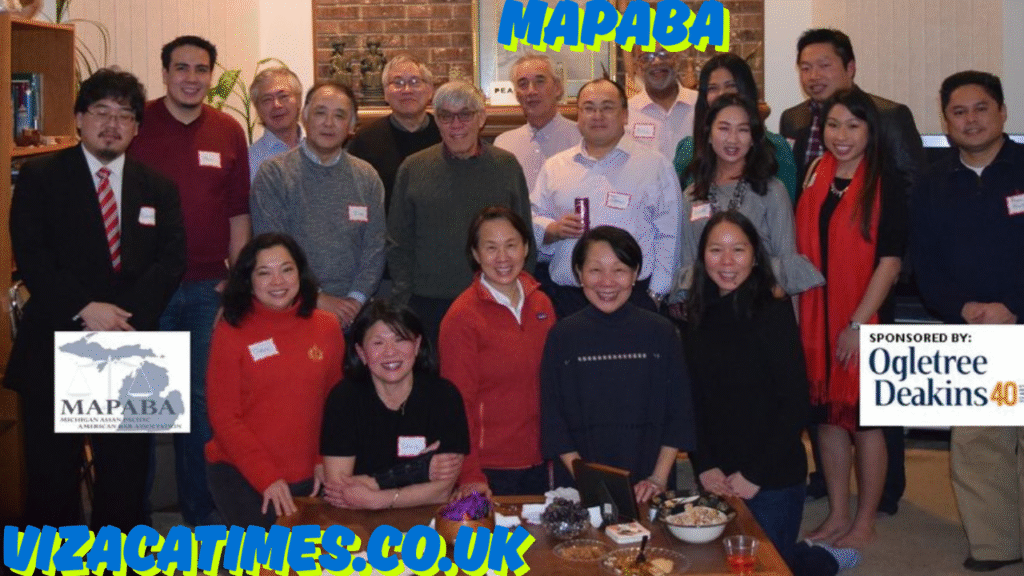Mapaba, ??, What It Really Means: A Deep Dive into Its Purpose, Process, and Significance

Mapaba, ??, Meaning, Purpose & Cultural Significance Explained
Understanding the term mapaba goes beyond a literal definition—it dives into the complex framework of organizational life, student activism, cultural immersion, and identity formation, especially within Indonesian academic or organizational circles. The word often raises the question: mapaba??—what does it mean, why is it important, and how does it impact those involved?
Let’s explore this multifaceted concept through detailed discussion, real-world context, and cultural interpretation.
What Is Mapaba??

The term mapaba stands for “Masa Penerimaan Anggota Baru” in Indonesian, which translates to “New Member Acceptance Period.” It is a fundamental initiation process typically conducted by student organizations or campus-based activist groups such as HMI (Himpunan Mahasiswa Islam), PMII (Pergerakan Mahasiswa Islam Indonesia), or GMNI (Gerakan Mahasiswa Nasional Indonesia).
While it might appear as just another student induction program, mapaba is a deeply symbolic and transformative stage, acting as a bridge from being an outsider to becoming an active participant in a student organization or ideological movement.
Historical Context of Mapaba
To grasp the full significance of mapaba, it’s crucial to understand its historical roots. Mapaba isn’t merely a modern invention—it evolved from the political and ideological ferment in Indonesian universities during the 20th century. At the height of student activism, especially in the 1960s and during the reformasi era in 1998, groups began formalizing processes to prepare and educate new recruits.
Mapaba, in this context, functioned both as an educational and ideological filter. It ensured that individuals entering student organizations aligned themselves with the core values, commitments, and objectives of the group.
The Structure of a Typical Mapaba Program

Each organization may tailor their mapaba differently, but there are shared structural themes that usually define the experience. These include:
1. Orientation Sessions
These sessions familiarize new members with the history, vision, and mission of the organization. The idea is to create an ideological foundation and promote a sense of belonging.
2. Workshops and Discussions
Participants engage in discussions on nationalism, religion, leadership, social justice, and activism. These workshops are intended to stimulate critical thinking and foster intellectual growth.
3. Team Building Exercises
To strengthen bonds among the new members, organizations often include group tasks, creative challenges, and cooperative games. These foster unity and empathy.
4. Reflection and Sharing
Often conducted near the end, these sessions allow participants to reflect on their learning, share personal growth experiences, and receive feedback.
5. Symbolic Ceremonies
Many organizations include symbolic rituals such as oath-taking, torchlight vigils, or wearing certain colors to mark the transition from candidate to full member.
Why Mapaba Matters: More Than Just an Induction
People often ask, mapaba?? Isn’t it just a boring orientation? Absolutely not.
Mapaba is not merely an administrative formality—it’s a rite of passage. It’s where ideals are introduced, loyalty is tested, and collective identity is nurtured.
Intellectual Growth
Mapaba is often a person’s first deep dive into structured political, social, or religious discourse. It opens the mind to diverse viewpoints and instills a lifelong habit of critical thinking.
Emotional and Social Transformation
For many, mapaba is emotionally moving. Strangers become family. New bonds are formed through shared challenges, sleepless nights, and intense discussions. These experiences create lifelong friendships and collaborations.
Formation of Identity and Leadership
Participants don’t just learn about leadership—they practice it. They learn to speak in public, negotiate ideas, and stand firm in their beliefs. For many youth, mapaba is their first platform to lead, influence, and inspire.
Mapaba in Modern Times: Challenges and Adaptations
With the rise of digital platforms and the increasing scrutiny of student organizations, mapaba has also undergone changes.
The Digital Shift
Due to technological advancements and global events like the COVID-19 pandemic, many organizations have adapted mapaba to online or hybrid models. While this makes participation easier, it raises concerns about losing the emotional depth and interpersonal bonding found in face-to-face sessions.
Misuse and Misconceptions
There have been instances where mapaba was misunderstood or misused as a means for hazing or indoctrination. Critics argue that when improperly managed, it can turn into psychological pressure rather than a formative journey. As a result, transparency and ethical facilitation are becoming more important in maintaining the integrity of mapaba.
Cultural and Philosophical Underpinnings of Mapaba
On a deeper level, mapaba reflects a strong cultural motif common in many societies: the journey from the periphery to the center. Much like coming-of-age rituals in tribal cultures or religious baptisms, mapaba signifies transformation.
It’s about moving from unawareness to understanding, from individualism to collectivism, and from silence to vocal activism. It also plays into the Indonesian value of “gotong royong” (communal spirit), teaching participants that no struggle is faced alone.
Voices from the Ground: Testimonies of Mapaba Participants
To highlight the lasting impression of mapaba, here are a few paraphrased sentiments often shared by those who have undergone the process:
- “Before mapaba, I didn’t know what I stood for. Now I’m part of something bigger than myself.”
- “It was exhausting, but it woke me up intellectually and emotionally.”
- “The friends I made during mapaba are now family.”
These voices confirm that mapaba is not an isolated event—it resonates far beyond the few days of induction.
The Future of Mapaba
As the world modernizes, so too must mapaba. Future iterations are likely to emphasize inclusion, digital literacy, emotional intelligence, and sustainability, all while holding on to its foundational values: education, critical awareness, and camaraderie.
Young people today are more socially aware and technologically advanced than ever before. Thus, organizations conducting mapaba must adapt their methods to remain relevant while preserving their original intent—to shape responsible, conscious, and capable individuals.
Frequently Asked Questions (FAQs) About Mapaba
Q1: What is the full form of mapaba?
A: Mapaba stands for Masa Penerimaan Anggota Baru, which translates to “New Member Admission Period.”
Q2: Is mapaba compulsory to join student organizations?
A: In many Indonesian student organizations, yes. It’s seen as the essential first step for integrating new members.
Q3: Does mapaba involve hazing or physical challenges?
A: Ethically organized mapaba events focus on education and bonding. Any misuse involving hazing is against its intended spirit.
Q4: Can mapaba be conducted online?
A: Yes. Some organizations now use hybrid or fully digital models, though it may impact the interpersonal elements.
Q5: How long does a mapaba event usually last?
A: It varies, but typically spans 2–4 days, depending on the organization’s structure and goals.
Final Thoughts on Mapaba, ??
Mapaba is more than an event—it’s a transformation. Whether viewed through an academic, ideological, emotional, or philosophical lens, it stands as a crucial cultural mechanism in student and organizational life. Asking mapaba?? leads to a deeper understanding of how people are shaped by experiences that challenge, empower, and unite them.
Also read : Alison Pemberton, ?? — A Deep Dive Into Her Life, Career, and Public Curiosity


